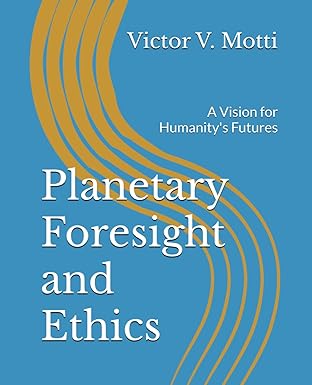Die gegenwärtige Zeit ist geprägt von rasanten und oft gleichzeitig stattfindenden Veränderungen und
Entwicklungen: Technologien wie Künstliche Intelligenz (KI), neue regulative Anforderungen wie die CSRD
oder der EU AI Act sowie gesellschaftliche und politische Herausforderungen sorgen für dynamische und
disruptive Zukunftsperspektiven mit spezifischen Anforderungen an die Resilienz und das
Innovationsmanagement. Die strategische Vorausschau (Foresight) gewinnt aus diesem Grund sowohl in
Unternehmen als auch in der Forschung zunehmend an Bedeutung.
Der Workshop „Foresight in Theorie und Praxis“ dient daher als Forum, um Akteure aus Unternehmen und
wissenschaftlichen Einrichtungen zusammenzubringen und Erfahrungswerte sowie Kooperationspotenziale
der strategischen Vorausschau zu diskutieren. Insbesondere soll dabei auch die Bedeutung der Informatik
für den Aufbau und die Weiterentwicklung eines Foresight-Prozesses berücksichtigt werden.
Folgende Fragestellungen bieten eine Orientierung über die thematischen Schwerpunkte des Workshops:
- Welche Forschungsansätze im Bereich Foresight existieren bereits? Wo gibt es weiteren
Forschungsbedarf?
- Wie werden Forschungsansätze derzeit bereits in der Praxis angewandt? Wodurch zeichnen sich
diese aus und wo liegen die Grenzen?
- Wie gestaltet sich strategische Vorausschau in Unternehmen? Wie unterscheidet sich diese in
Großunternehmen und KMU?
- Wie kann strategische Vorausschau in wissenschaftlichen Einrichtungen umgesetzt werden? Wo
liegen Unterschiede zur unternehmerischen Herangehensweise, wo gibt es Gemeinsamkeiten?
- Wie können digitale Technologien (z. B. IT-Anwendungen, KI) die strategische Vorausschau
unterstützen und verbessern? Welche Ressourcen und Kompetenzen sind hierfür erforderlich?
Die Beiträge zum Workshop können verschiedene Aspekte von Foresight bzw. strategischer Vorausschau
behandeln. Mögliche Themen sind (nicht abschließend):
- Methoden der strategischen Vorausschau
- Anwendung von Foresight in Unternehmen
- Anwendung von Foresight in wissenschaftlichen Einrichtung
- Digitale Technologien zur Unterstützung von Foresight (z. B. KI, Big Data, Simulationen)
- KI und Foresight
- Simulationstechniken
- Datenanalysen/Datenmangement
- Szenariotechniken
- Trendanalysen
- Horizon Scanning
- Innovationsmanagement
- Organisatorische und kulturelle Herausforderungen der strategischen Vorausschau
- Regulatorische und ethische Aspekte von Foresight
- Unternehmensstrategie und Foresight
- Risikomanagement mit Foresight
- Best Practices und Praxisberichte
Zielgruppe des Workshops sind Forschende und Anwendende aus dem Bereich strategische Vorausschau
bzw. Foresight sowie:
- Fach- und Führungskräfte aus Unternehmen, die strategische Vorausschau in ihre Planung
integrieren
- Beratende im Bereich Zukunftsforschung und Trendanalyse
- Verantwortliche für Innovations- und Technologiemanagement
- Entscheidungsträger*innen in Politik und Verwaltung, die zukunftsorientierte Strategien entwickeln
- IT-Experten*innen und Entwickler*innen von digitalen Foresight-Tools
- Wissenschaftler*innen und Studierende mit Interesse an Foresight-Methoden
HINWEISE ZUR EINREICHUNG
Einreichungsfrist für Workshop-Beiträge: 04.05.2025
Benachrichtigung der Autoren: 02.06.2025
Einreichungsfrist für LNI-Beiträge: 11.06.2025
Workshop: 19.09.2025
Die Einreichung der Beiträge erfolgt als PDF über EasyChair.
Für die Beiträge sind die LNI-Vorlagen zu verwenden.
Beiträge können in deutscher oder englischer Sprache verfasst werden und sollten folgenden Umfang nicht überschreiten:
Full Paper: 10-12 Seiten
Short Paper: 6 Seiten
Work-In-Progress-Paper: 3-5 Seiten
Praxisbeiträge aus der Industrie: 3-5 Seiten






